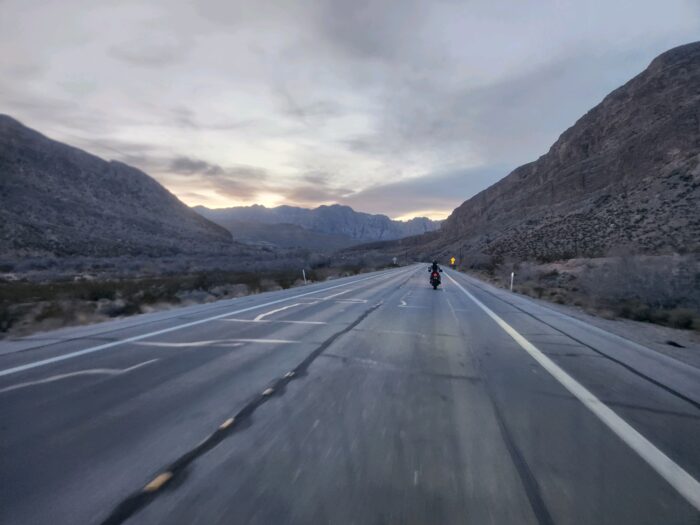Welcome back to our Meet the Postie series. Each month I sit down with a fellow member of the Postie team to ask them questions about work, life, and everything in between. These posts are loaded with relatable stories, tips on stress management and work/life balance, fun photos, and more. Last month we sat down with Cristina Padron, a fashionista and with passion for travel and a huge appreciation for her Postie coworkers. This month you get to meet William (Billy) Hayes, a member of our Data Science Team! Billy is go-to resource for everyone at Postie. He’s smart, funny, and always eager to learn about everything and everyone he meets. Let’s dive in more…
Name: William (Billy) Hayes
Location: Las Vegas, Nevada
Title: Data Scientist
How long you’ve worked at Postie: 2.5 Years
Favorite Food: Frozen Blueberries
If you could travel to space, who would you take with you: Copernicus
Pets: None, but my sister just got a Corgi so maybe that makes me a dog uncle?
Find Billy on LinkedIn!
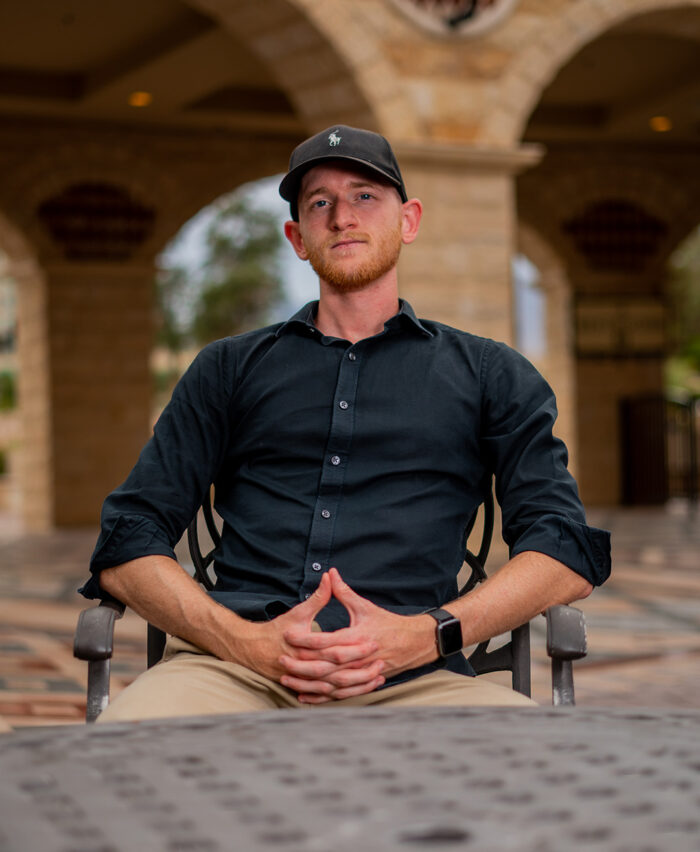
What inspired you to join Postie?
It was getting on a call with the people from the technical side at Postie. I heard a lot of pretty advanced tech was being used, and it’s kind of difficult in the data science industry to gauge what a data science job really means. In some cases, it’s using Python to sort through a bunch of Excel files, visualizing things, or building a database, all very different ideas and interpretations of the data scientist role. But when I heard the actual tech that the head of data science was talking about, I was like, oh, these guys are really using some sophisticated stuff. Specifically, they were talking about applications of generative adversarial networks and machine learning on datasets with hundreds of millions of rows and thousands of features. And I was like, Okay, these guys are actually using some really advanced tech. That was when I knew I wanted to be part of this team.
What do you love most about your job?
There is a lot of creative freedom. I come up with a lot of different ideas and different products and things that we could use as a company, and I feel like I get to explore the tools and concepts I’m interested in. Leadership is really helpful when it comes to allowing me time to research and look into these things, and then when I do develop them, they help me push them to production.
Alongside that, I love my job because we have really strong leadership on the technical side, especially the head of my department, which is data science, Dr. Nicholas Tyris. He really advocates for my ideas. The CTO, Jonathan Neddenriep, works closely with the data science team, too. He’s very engaged and involved in our work, and is very helpful when it comes to giving us ideas on how we should approach something, or if we should try a certain direction of research. So I love my job because of the clear emphasis on applied research and the abundance of creative freedom.
What are you most proud of, professionally, since joining Postie?
Probably researching and developing a project from essentially a seed idea to a finished product that we actually implemented and used to determine the output for a client. My idea stemmed from wondering if there is a way to use production-level data or production performance to help scale all of our machine-learning models. We’ve been using this new product with a few of our clients, but I know we haven’t fully released it yet, so I’ll leave out the exact details for now.
Editor’s note: Stay tuned for more details on this exciting new data science feature. 😉
Tell us something about your professional development journey.
I originally wanted to be a doctor. When I was like 12, I did a presentation on the brain, and then I thought, “Okay, now, I need to be a neurosurgeon.” But I ended up switching majors from biochemistry to physics, just because I think physicists had the second highest MCAT score, so I switched to physics to get into Med school.
Then I took a bioinformatics internship where I wrote code to find drug-gene interactions from existing literature that weren’t available in professional databases. So I was able to find information that not a lot of people had, or were able to get easily, or information that had been lost in this sea of literature. That internship was when I realized I wanted to be a data scientist. So I’ve hopped around quite a bit. There’s a very unconventional path there.
I also read a book called When Breath Becomes Air, about a doctor who gets cancer, and he still chooses to practice medicine in his last remaining months. I thought, “Yeah, I’m not doing that.” But I would most likely be coding in my last 6 months if that happened, so I think I think I ended up in the right career.
What is the biggest challenge you’ve faced since joining Postie?
Probably working with the data science team to build the CRM Optimization product just because it was a really technically difficult thing to build. And all of us on the data science team had to contribute something to its construction. Collaborating and making sure we’re all working with the same inputs, normalizing the different features the same way, and making sure we’re getting the exact same expected outputs was pretty technically challenging, not only from a research standpoint but also from a collaboration standpoint.
What have been some of the most important lessons you’ve learned throughout your career?
There have been a couple. The first one is that I personally learn better by doing or by building. Studying and reading resources are great, but until I actually apply those concepts they kind of get lost until I’ve actually built a program or worked through some kind of method that actually implements what I just read, or what I just learned. The second is that tech changes very quickly, it’s a very rapidly evolving field. However, a lot of the fundamental concepts remain the same. So learning the fundamentals has been really helpful for me to adapt more quickly to new tech. The third one is that Python isn’t always the right tool for the job. I’ve learned not to be afraid to switch languages or learn new languages that are better for solving certain problems. I was very biased towards Python, but sometimes there are other programs and tools that are just better for different things. So not being afraid to jump into things like bash scripting, or D3 with Javascript, has been really useful to more effectively solve a variety of different problems.
How has your role evolved since joining Postie?
I was originally brought on to be a bit of a hybrid data engineer and data scientist, but I’ve since actually leaned more toward a data scientist and client-facing role. I do a lot of interacting with our client success and sales teams, as well as clients, as opposed to working with the engineering team. I still work with the engineering team, but I don’t do as much as originally expected because I’m building presentations, talking with clients, and building visuals that help clients understand different kinds of concepts.
Where do you think you can have the biggest impact in your role?
I think the biggest impact I can have comes from researching ideas that can tie together different lower-level products and ideas that we have. So, for instance, the point of research that I was most proud of that I referenced earlier, in slightly more detail, was taking a step back and realizing that there’s a more abstract way to think about some of the outputs of some of our machine learning models. So asking questions like “What kind of framework could we use to combine these tools so we can work, learn, and optimize a lot faster?”, that’s where I can provide a lot of value, or where I can have a big impact.
Another thing is helping clients and coworkers better understand some of the technical tools that we have here. I’ve been on calls with clients where they’re like, “Oh, this analogy makes this concept make a lot more sense,” or “This slide or this visual makes things make a lot more sense to me.” That is also very rewarding.
What do you think is the most important skill that you bring to the table?
I’d say it’s a mixture of technical creativity, so thinking about things at an abstract, high level, and coming up with a variety of different ways to solve problems as well as maybe a strong business intuition. So a lot of times on the research side, we can get interested or excited by new fancy tech, but there’s also a focus on narrowing that down to a practical business application, and I think I do a good job of balancing a lot of different ideas with the practical, applicable business ideas. Of course, as I mentioned earlier leadership helps a lot with that as well. I come up with a lot of ideas, and they help guide me with their perspective to narrow down what should be focused on first.
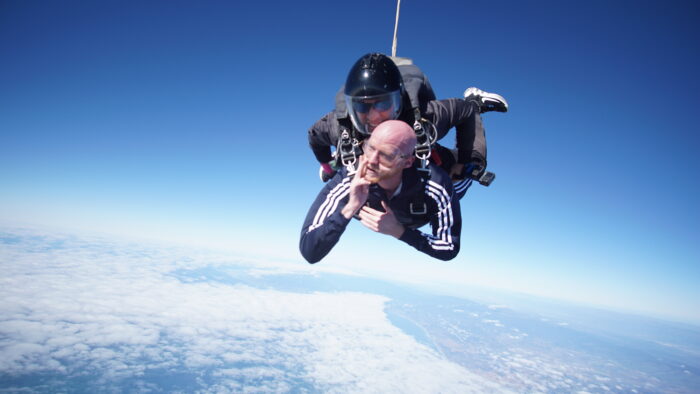
What is the most important lesson that you’ve learned from working with the team?
Probably when it comes to communicating ideas, simpler is usually better. There was an idea for a product that I communicated between some different teams, and I had like a hundred slides about how it could look, and different features we could have, but all that kind of goes out the window when you actually start to build something. So just keeping the core idea simple and letting other people add their own ideas and building off of it is usually what makes the most sense. Keeping that initial communication simple, and just generally trying to keep things as simple as possible, is probably the most important lesson I’ve learned from working with the Postie team.
What’s your favorite memory from working at Postie?
My first time in person with the data science team. Dr. Sadegh, Dr. Nicholas, and I were walking through Washington, DC and we were just talking about different product ideas. I like to come up with a lot of different ideas or bounce ideas off other people, and they were very receptive to the ideas and talked about what they thought would work or what wouldn’t. It was nice to have people who were really bright seriously consider my opinions and not only show the willingness to say, “Oh, that’s a good idea,” but also throw exceptions to my ideas that I hadn’t considered.
Do you have any strategies for dealing with stress at work?
I actually got this tip from a friend of mine who had mentioned that if you’re in a research role or a role that requires a lot of focus, you should block off your time for answering things like email, Slack, or any kind of instant messages that aren’t necessarily urgent.
For me, I typically focus on researching or working from the start of my day at about 8 am to about 2 pm. Then, after 2 pm I’ll look at my Slack, email, or anything else that needs to get done. After 2 pm I’ll either schedule time for future tasks or if I can knock something out right then, I will. Having time before 2 pm to focus on researching or answering questions from the previous day reduces stress quite a bit because now it’s not a bunch of different things that need to be immediately taken care of. Instead, I can reduce task switching by knowing what I have to focus on at the start of the day.
What tips or advice would you give someone starting a new job in your field?
There is essentially a fire hose of information when it comes to the tech field, specifically the data science field. You wonder, “Should I learn about LLMs? Or should I learn about neural networks or random forest models? Should I learn about how to build relational databases?” My suggestion is, yes, ideally you can learn it all, but it’s too much to tackle all at once when you’re trying to get started. I would say, pick something you’re interested in learning – specifically pick a question you want to answer with data – and then build some kind of pipeline that solves that question. Starting from these kinds of initial projects can help you branch off into things you’re more interested in and can help you identify what components of analyses and tech tools you like and dislike.
If you’re building something, it’s also important to host it online. Streamlit is a great tool that can help you host your project ideas so that when you’re talking about what you’re building you can also show it. That makes it easier for people to understand what you’re doing and working on.
A couple of years ago, I built a Streamlit application that you could use to describe a coffee based on its flavors, it would output a score for how well that coffee might do, and it was really difficult to get a higher score. It was based on flavor data from coffee cupping competitions. I started with an interesting and cool question, but once I had a place to host it, or to show it off, that’s when it actually became tangible as opposed to just explaining something cool.
What industry changes or trends do you think will have the biggest impact?
I think the obvious answer, at least the one that’s getting a lot of hype, is LLMs. ChatGPT, Llama, and other open-source LLMs from Hugging Face are pretty fascinating and interesting technologies. They are definitely gonna change the way we interact with information if they haven’t already.
The most immediate impact is going to be the ability to search and summarize large bodies of text information. Any individual’s notes files, textbooks, and other documents could be fed into an LLM that could be used as a reference when asking specific questions. Instead of needing to scour your notes and documents to find the file or point of information you might need, you could use the LLM as a personal assistant that can tell you exactly where the concept you were looking for is located.
More interestingly, the user will be able to interact with their personal information in a more creative way than simply searching for keywords. For instance, LLMs that are used for storytelling and games are only just starting to develop and could create incredibly dynamic and interactive environments for participants. Imagine if you could have a choose-your-own-adventure storybook through an LLM that combines worldbuilding with the attributes of different characters and tracks the state of your game as you can interact with the environment around you. It allows the language model to come up with a system of rewards, or some kind of interesting direction the story can go in a way that nobody has seen before.
Another one I think a lot of people are sleeping on is using LLMs to make decision-making processes based on input sentiment much more dynamic. LLMs could allow people to interact with a computer in a way that’s much more intuitive for the average person so that you don’t have to go through those abstractions or layers of code. For instance right now when you use the command line on a computer, when it asks you if you want to proceed you enter “Y” or “N”. If you enter anything other than “Y” or “N”, it’s going to give you an error. But with LLMs, there could be really interesting and dynamic decision-making processes. You could give any affirmative input: “Yeah,” “Sure,” “Let’s do it,” “Absolutely,” etc. to allow the program to proceed. If you give any negative: “No thanks,” “Not right now,” “Not interested,” etc. then the program would not proceed. It could then handle far more edge cases and error handling could really become dynamic.
Do you have any mentors (Postie or otherwise) you’d like to shout out? If so, who and how has this person made an impact in your life?
There were a lot of mentors in the past, but I’ll stick to Postie.
Dr. Sadegh, who is on the data science team, is a really strong researcher. A decent chunk, upwards of 50%, of the roadblocks that I encountered in research were actually solved by an interesting question that he posed, or a potential research direction that he implied or suggested. He’s been a really strong researcher and contributor to the team who has helped me break through a lot of different roadblocks I’ve run into.
Also, Dr. Nicholas, who is the head of the Data Science department. He’s a great leader and encourages all of us to look for new ways to add value to the company. When the CRM Optimization product was still an idea, he was the one who took the brunt of exploring, researching, and reading the white papers to make sure that it would be built and constructed, and then championed that idea through to release. He has created an environment of collaboration; I propose an idea and he always hears me out and confirms if it is a good idea or points out if a research area has some potential pitfalls. He personally invests his time and attention into the products that he champions, which means he leads from the front. He’s also a great presenter. A huge part of the data science job is communicating ideas and technical concepts, and he’s excellent when it comes to rhetoric and visualizations that help get those difficult ideas across.
Finally, of course, is Jonathan, our CTO, who’s a really strong technical lead for the company. I like to learn from him about the technical side because he’s well-educated technically, but he also shows me how that all integrates with the business side. He has a really intuitive understanding of potential roadblocks in tech and research. He can quickly understand the theoretical limitations of the tech and does a great job of refocusing efforts into more productive research directions. He’s also great at understanding what kind of tech or information a client cares about and wants to see, which is something that I don’t necessarily know as intimately until I talk with a given client. He has a lot of experience interacting with different clients as well as interacting with the actual tech stack and knowing what’s possible with the resources we have available.
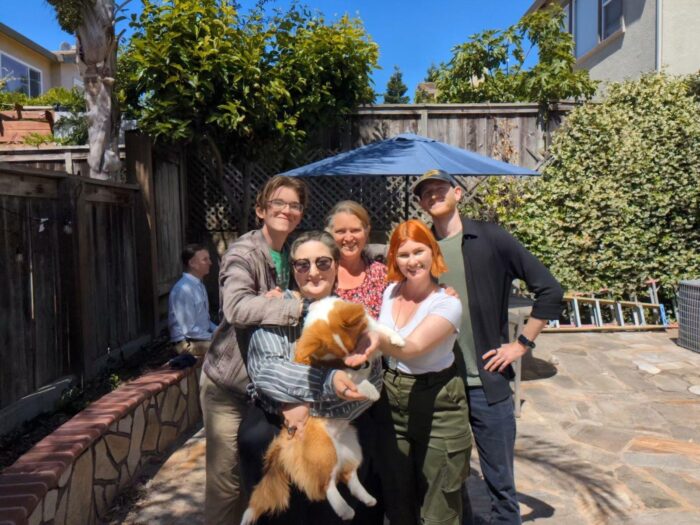
What do you enjoy doing outside of work?
Nothing crazy, nothing illegal. Spending time with friends and family, working on different kinds of projects I set up for myself, and accomplishing different goals that I set for myself as well as basic maintenance like working out, eating, and cooking. Also, I kind of enjoy doing chores to some extent. I used to hate doing the dishes, but now I kind of like being mindful when I do them: feeling the warm water, scrubbing the different components of the dishes, and finding a place for them in the dishwasher. I’ve started to enjoy some of the mundane things I do outside of work.
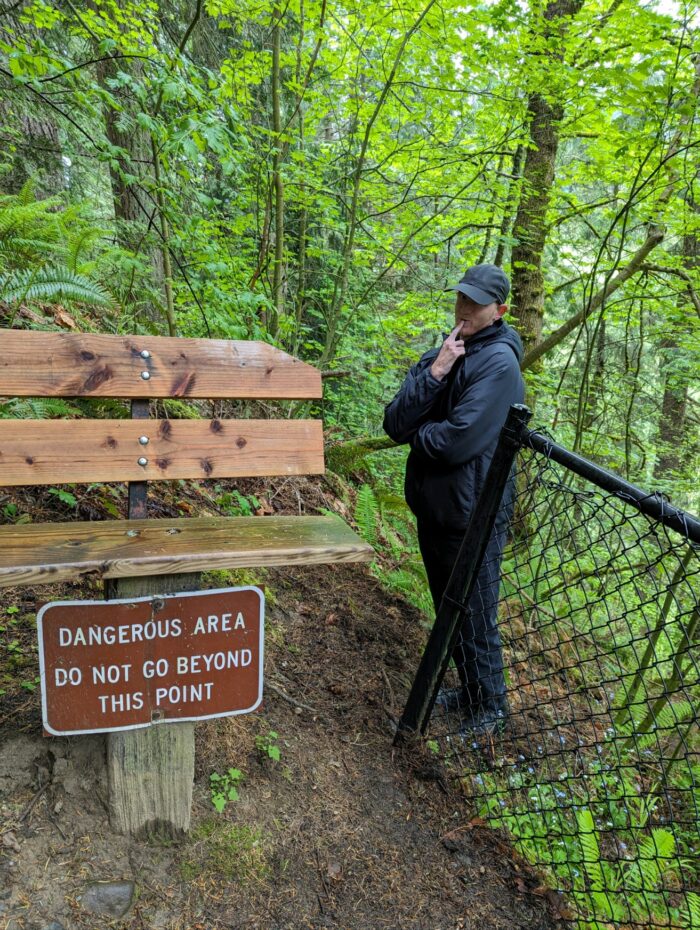
What would your perfect weekend look like?
That is an interesting question, and I think Tim Ferris has a really interesting idea around, not just the perfect weekend, but the perfect day in general, where he talks about the “optimal Tuesday,” or how you should optimize your life for the perfect Tuesday because that’s what most of your life is going to look like. Most of your life is not going to be a weekend or a big vacation or a big trip. It’s probably just going to be your day-to-day life. So for me, the optimal or perfect weekend looks a lot like the optimal weekday, which is waking up early, doing some work, and then spending time with friends and family. There’s probably a little more time with friends and family on the perfect weekend, but it’s really similar to how I spend pretty much every other day, which is the “optimal Tuesday.”
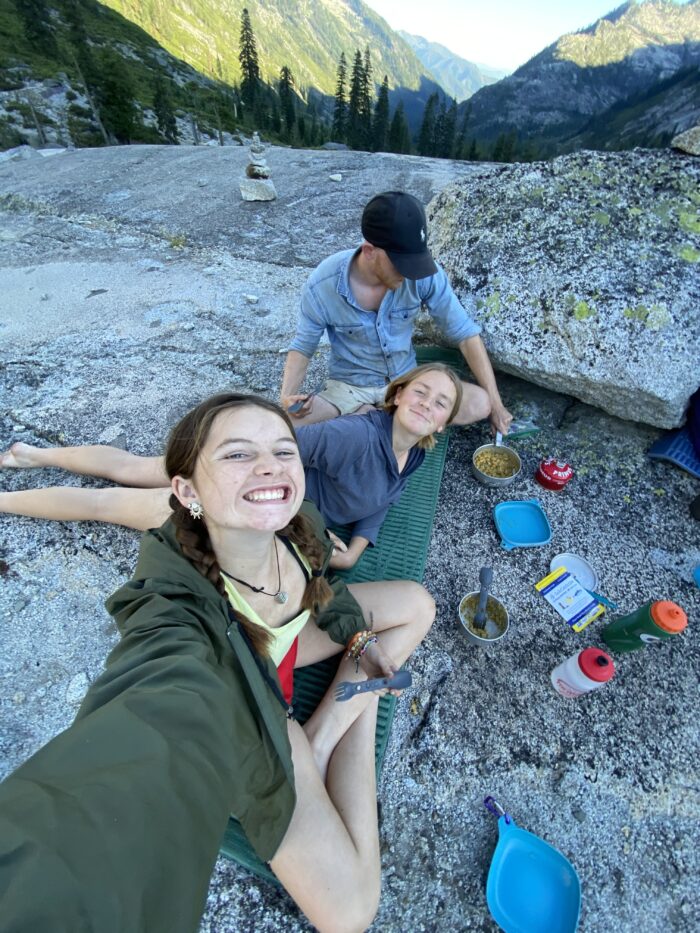
What’s something surprising that not many people know about you?
I don’t know if I’d say not a lot of people don’t know it about me, because my whole family knows it about me, but I was a really, really tough kid to raise. If you’ve ever seen one of those dogs, you open the door to your house a crack, and they just start putting their nose through the door and trying to get out and run away? Yeah, that was me. When our family would go on trips in the car and we’d stop, I’d immediately open the door and just start running. My mom has said, “I don’t know if you knew where you were going, but you very clearly had somewhere to be every time.” I was a real pain. I was really kind of a wild kid and tough to keep track of.
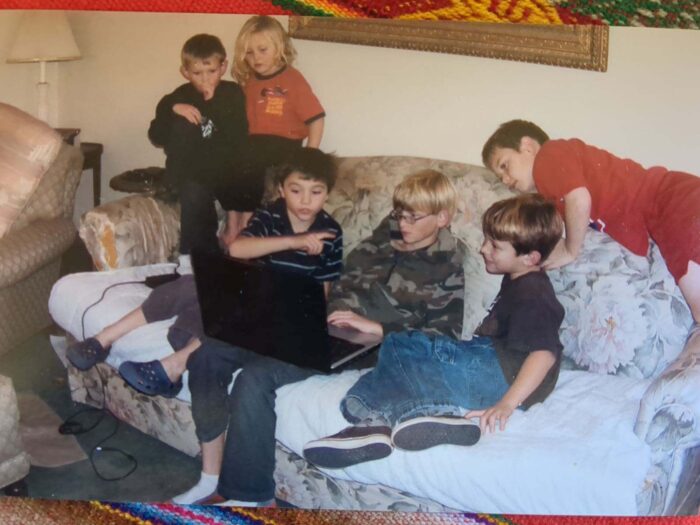
Do you follow any sports teams?
Not really. But I do enjoy going to the games with friends; that’s always fun.The Golden Knights in Vegas are huge. You see them everywhere; people wearing jerseys or hats, or they even have them on their license plates all the time. I think there’s a baseball team that’s transferring over to Vegas as well – the Oakland A’s. I’ve always liked playing sports, but I’m not so much into watching sports all the time.
Another thing about sports I really like is sports stats; they’re a lot of fun to look at. You can look at different players and try and estimate what’s going to happen. Also sports betting is fun, not necessarily from gambling and spending money, but looking at the lines and seeing what they mean, because the lines are telling you this has, like an X percent probability of occurring. I don’t place bets because I can see exactly where they’re taking the money and where that comes from. From a stats and math standpoint sports are a lot of fun because there are defined rules. You can collect a lot of data on what happens within those constraints of well-defined rules.
What type of books/movies do you enjoy?
Actually, my cousin’s wife just started a book club. I just joined that for their last book, which was a month ago. I was looking for a book to suggest, I realized I read pretty much exclusively nonfiction. The one I’m reading right now, Weaving the Web, it’s about the guy who made the Internet. It was published in 2000, so you can see him giving out these ideas of what the web could become, and certain pitfalls. It’s fun to see what did come true and what didn’t come true.

I like a lot of nerd books, and a lot of math books. I’m interested in reading one soon: Around the World in 80 Games. It explains these different board games, how they’re played, and the math and stats behind them.
As far as movies go, I like a lot of scary movies or horror movies, and comedies.
Do you have any creative outlets or interests?
I like reading and writing. I play some guitar, and make some music. I like watching movies. I like doing video editing. I’ve been video editing for a little while. And coding, of course, particularly when it comes to board games Again, there’s a lot of interesting math or ideas behind it.
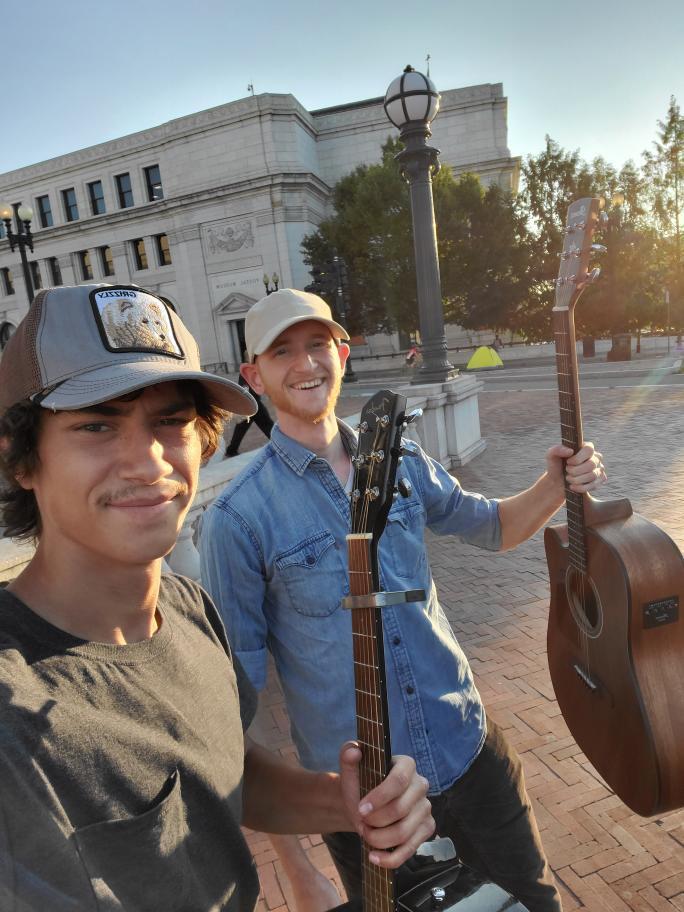
What’s a cause that you are passionate about?
I don’t know if it’s a cause, but the idea of having stronger communities and a need for third spaces. A lot of people that I talk to nowadays, they’re not sure how to make friends in new cities, or they’re not sure what the names of their neighbors are, which to me is kind of nuts. I know the names of my neighbors. I’ve known my neighbors in the past three cities I’ve lived in and I’ve been able to make friends in different places that I go. And I think one of the things that’s lacking that really everyone’s looking for right now is a place or a strategy to meet new people, and I think that if we could share some strategies around how to do that, or have spaces that are offered where people can meet other people that share their interests, I think that’d be really powerful, necessary, and useful. I’m passionate about stronger communities, but mostly about knowing your neighbors and getting to know the people in your community as opposed to just walking by them.
What’s something you’ve always wanted to try/learn?
Dancing. Salsa or line dancing. A style where if you know the basics or fundamentals you can have fun with a group of people that maybe you don’t know.I think that’d be a lot of fun, but I’ve talked about it for maybe a year and a half, and I know where I would go to learn, but I just don’t have the time. My priorities right now are with other things that I like doing just a little bit more.
What is the best thing that has happened to you this year?
I got vision correction surgery, so I can see now without glasses or contacts. I had asked four different optometrists if it was possible, and the first two said no, then I heard maybe, and then the fourth one I finally tested with said that I was actually the perfect candidate. I followed everything by the book and now my eyes are perfectly healthy and in fine recovery. It’s been great.
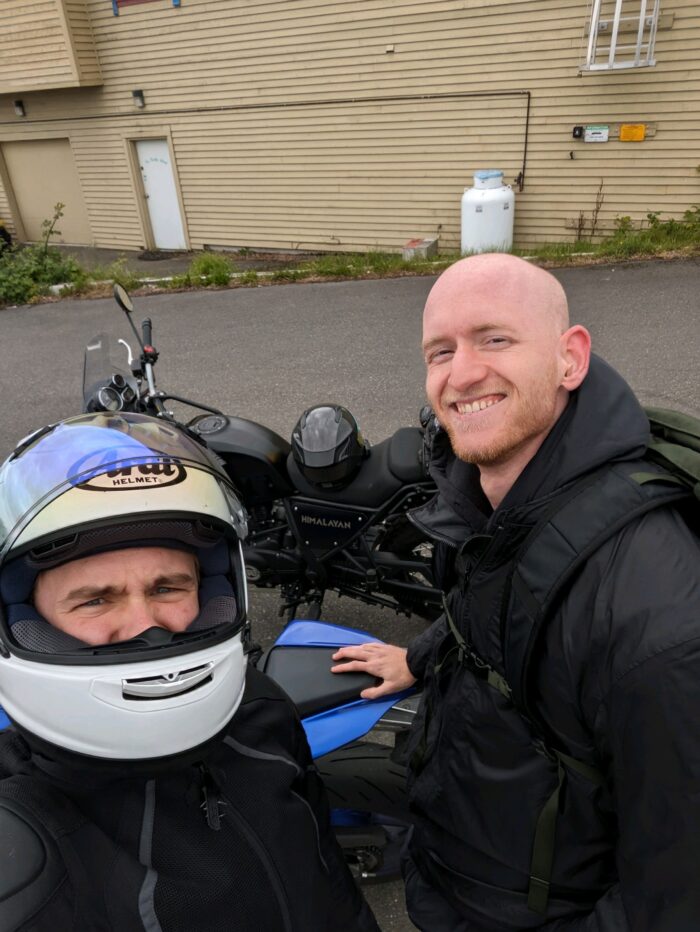
What is something that you are proud of about yourself?
I’m proud that I can make difficult decisions when I know they need to be made. Which might seem pretty vague, but things like switching majors, or switching fields from physics to data science. Everyone was to tell me I shouldn’t do that, or tell me there was no clear path outlined, but I knew that was something I’d be passionate about and wanted to work towards. The ability to make those decisions and trust myself that it’s the right thing to do, I’d say I’m pretty proud of myself for being able to do that.
If you could pick any superpower, what would it be and why?
I think there is a right answer to this one, and I think it’s time control. We could stop time to imitate super strength. I could stop time and smack you, and the fights over because you can’t stop me. It could be a really funny way to imitate other superpowers. I can be invisible, and you just pause time and walk away, and then watch them think you just turned invisible. Or you could say you can fly, but only a foot off the ground, and then jump up and pause time when you’re at that peak, and then jump up again in a different place and pause time and show these frames of you flying just above the ground, and everyone would be like “Whoa! He can totally fly like a foot off the ground.” I think that’d be a lot of fun.
—
Well, that was fun! Thanks, Billy. With that, I’ll see you all next time! 🚀
